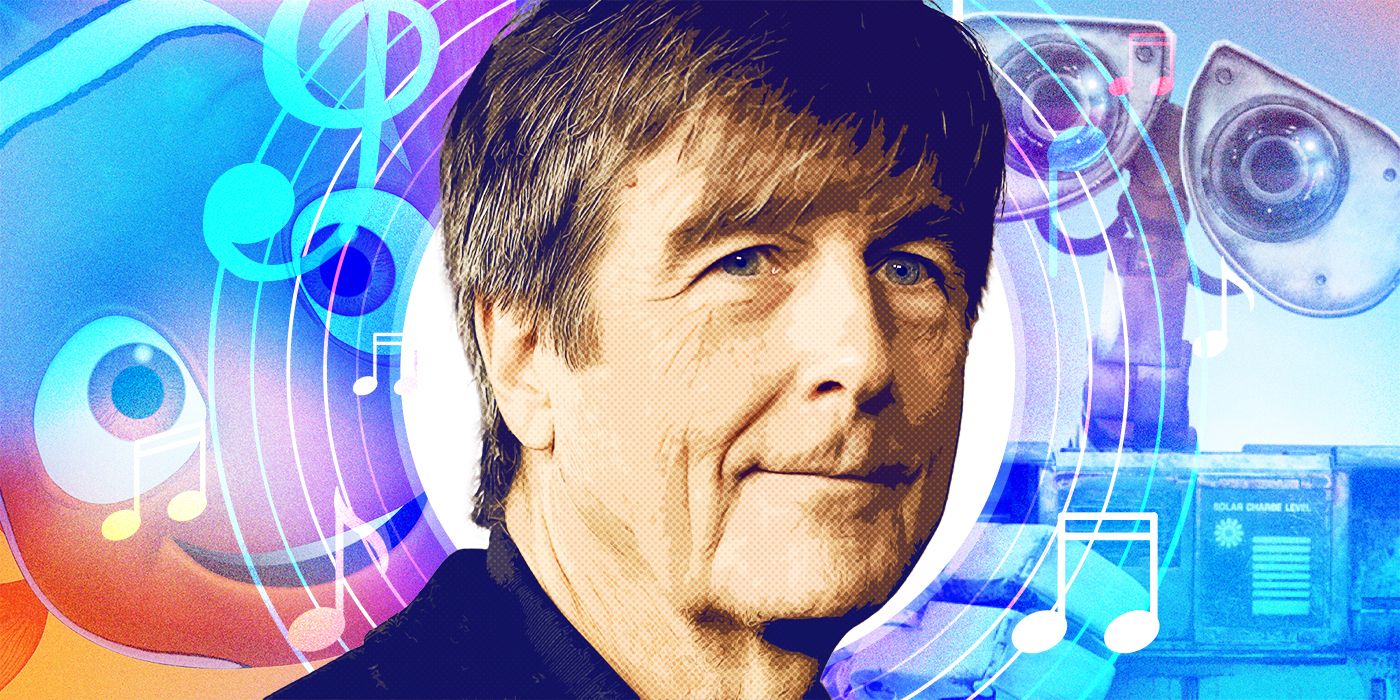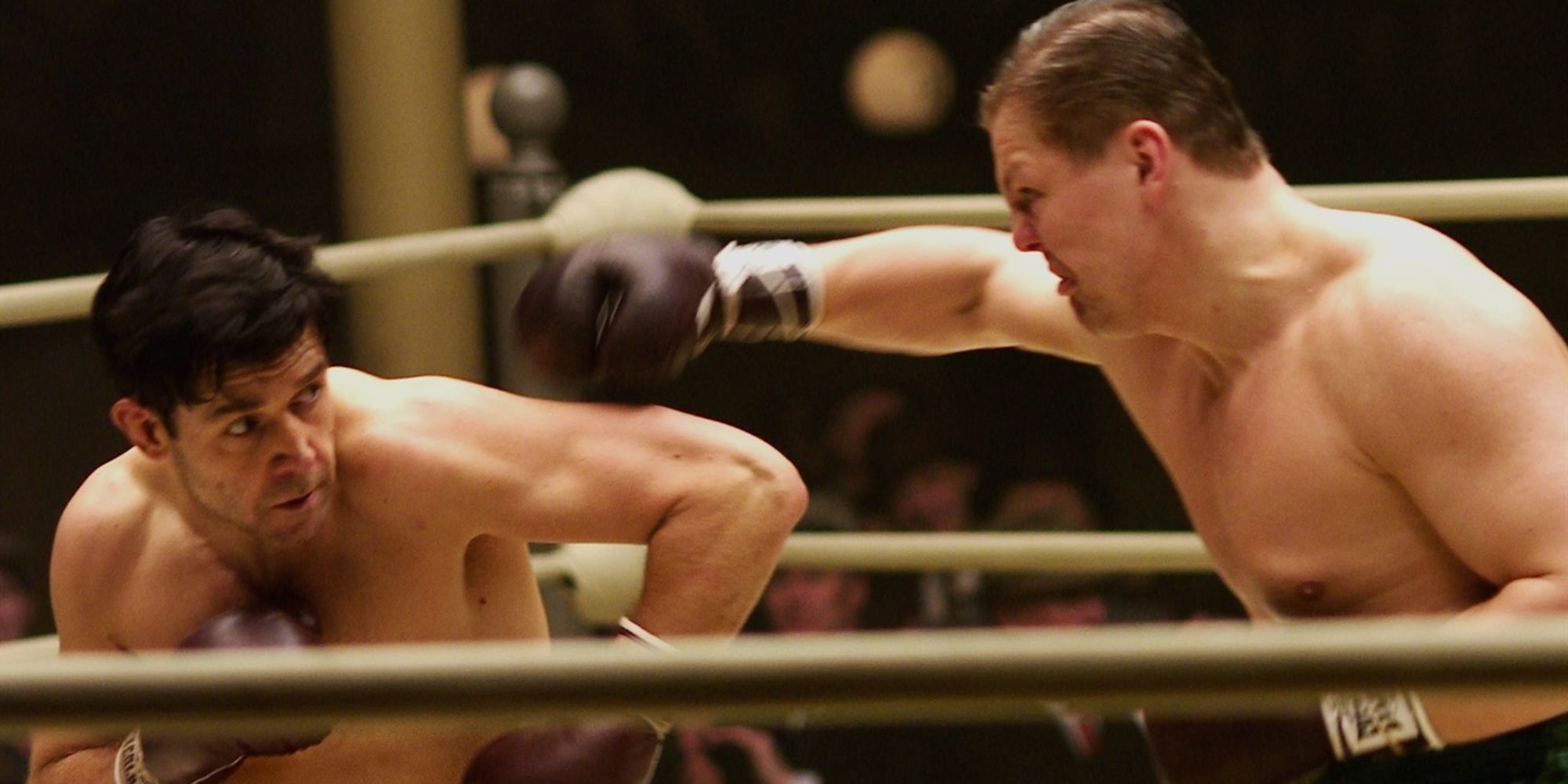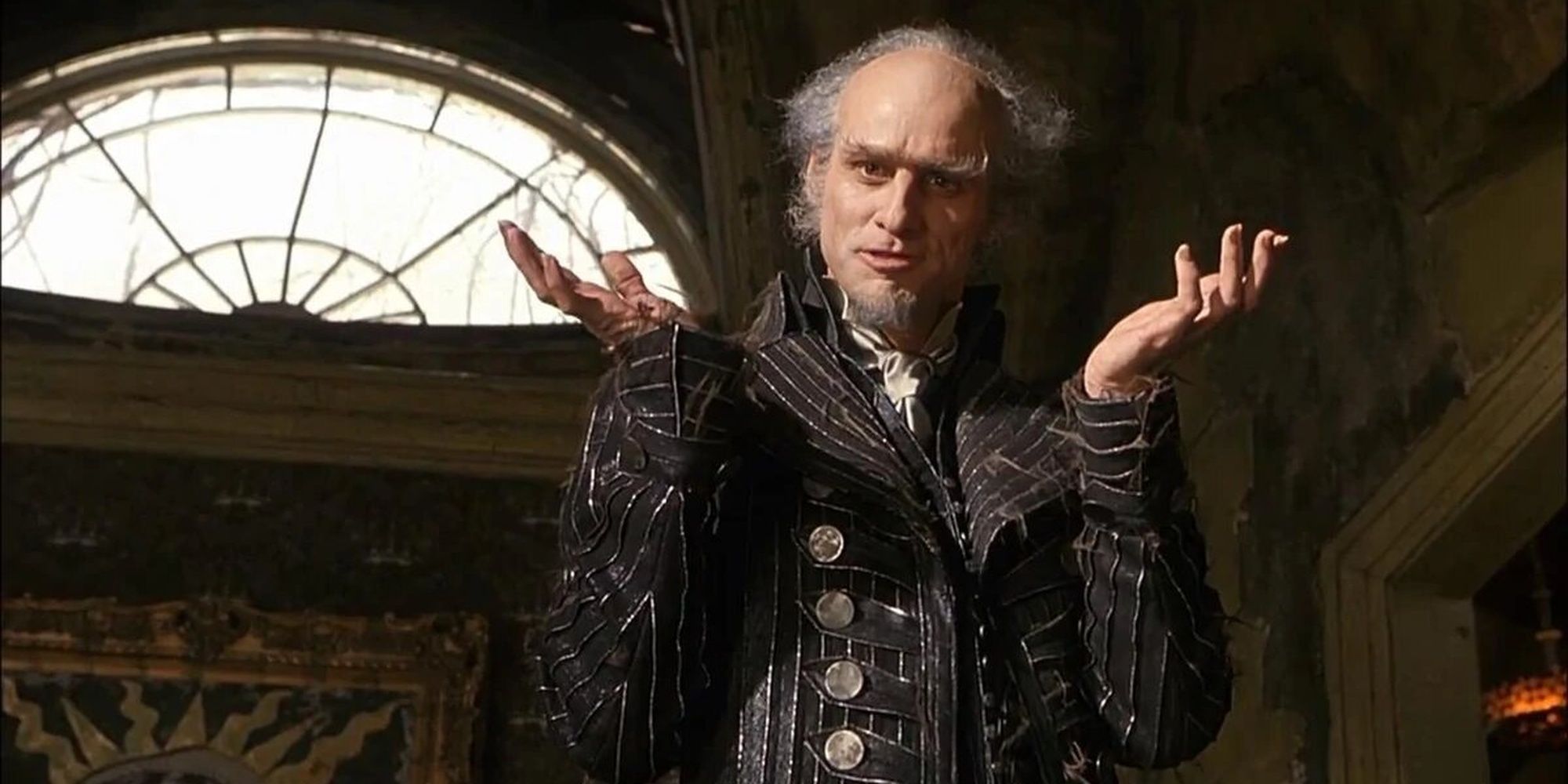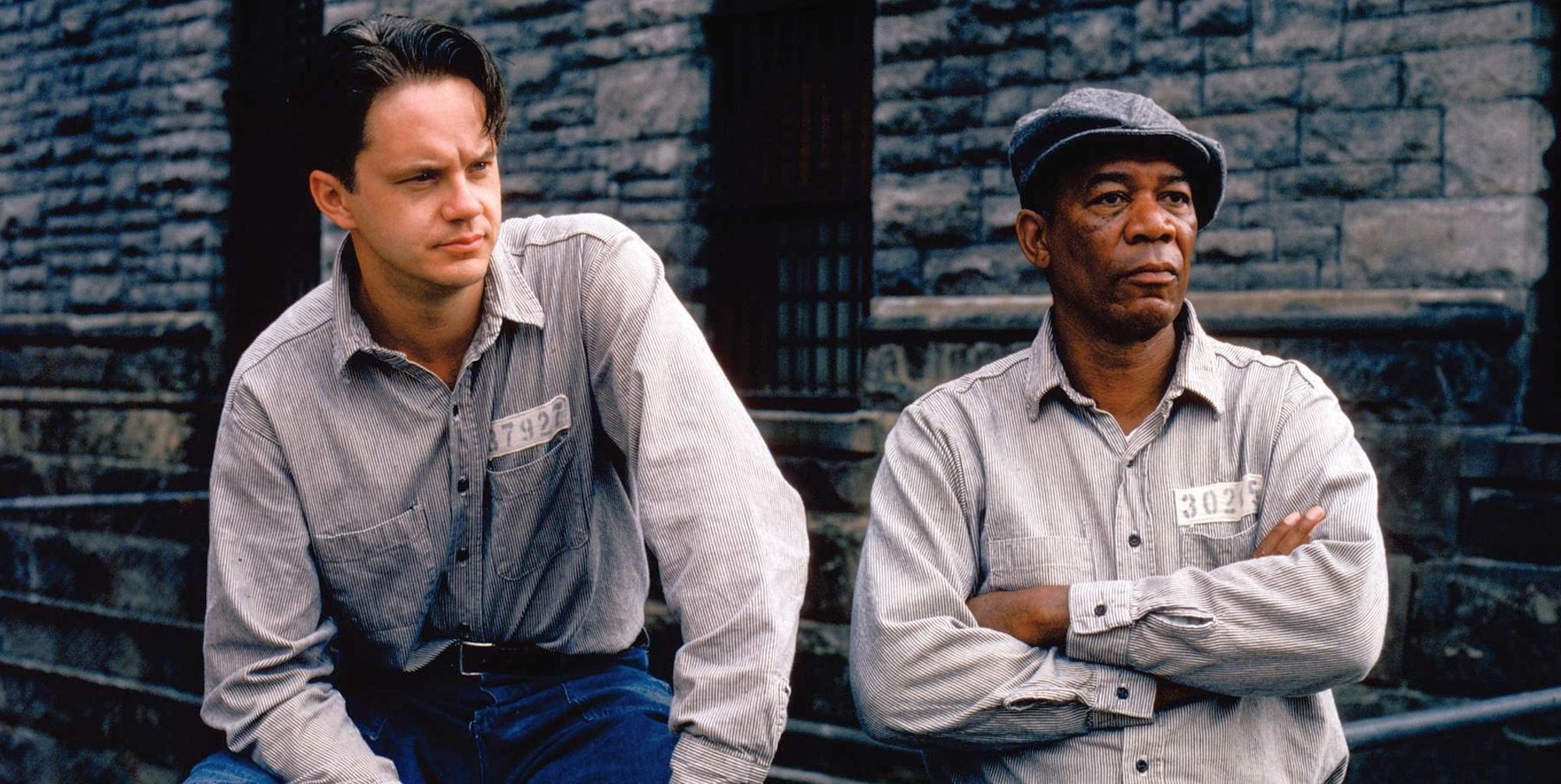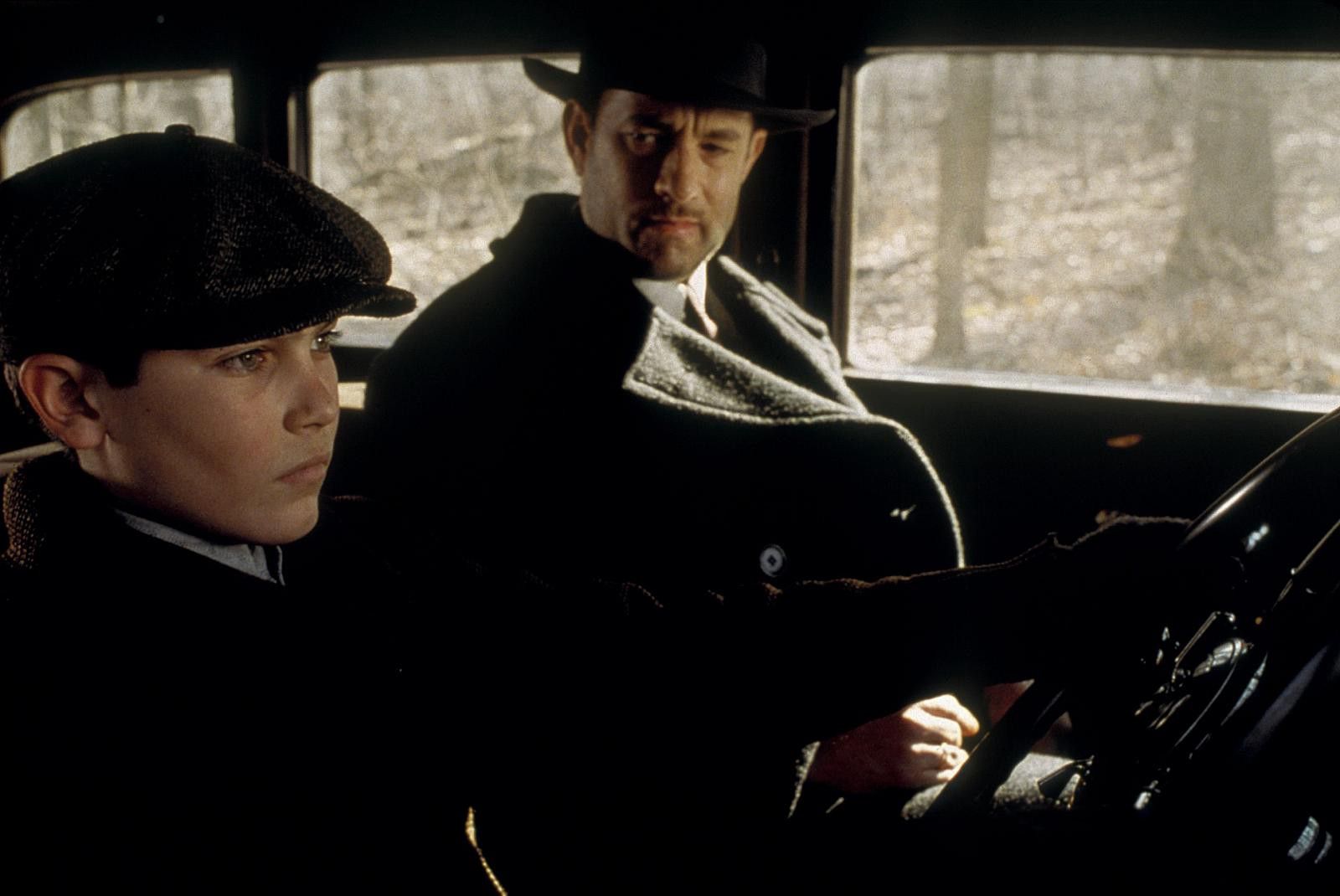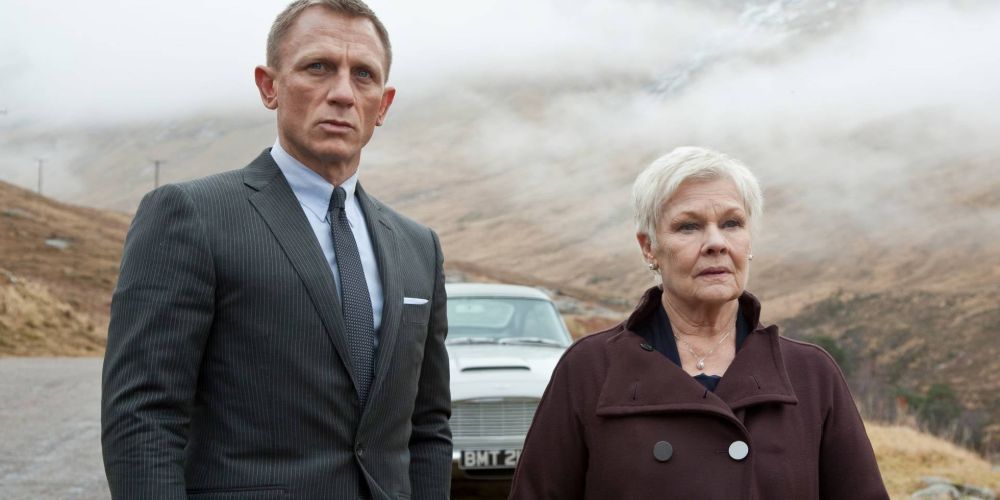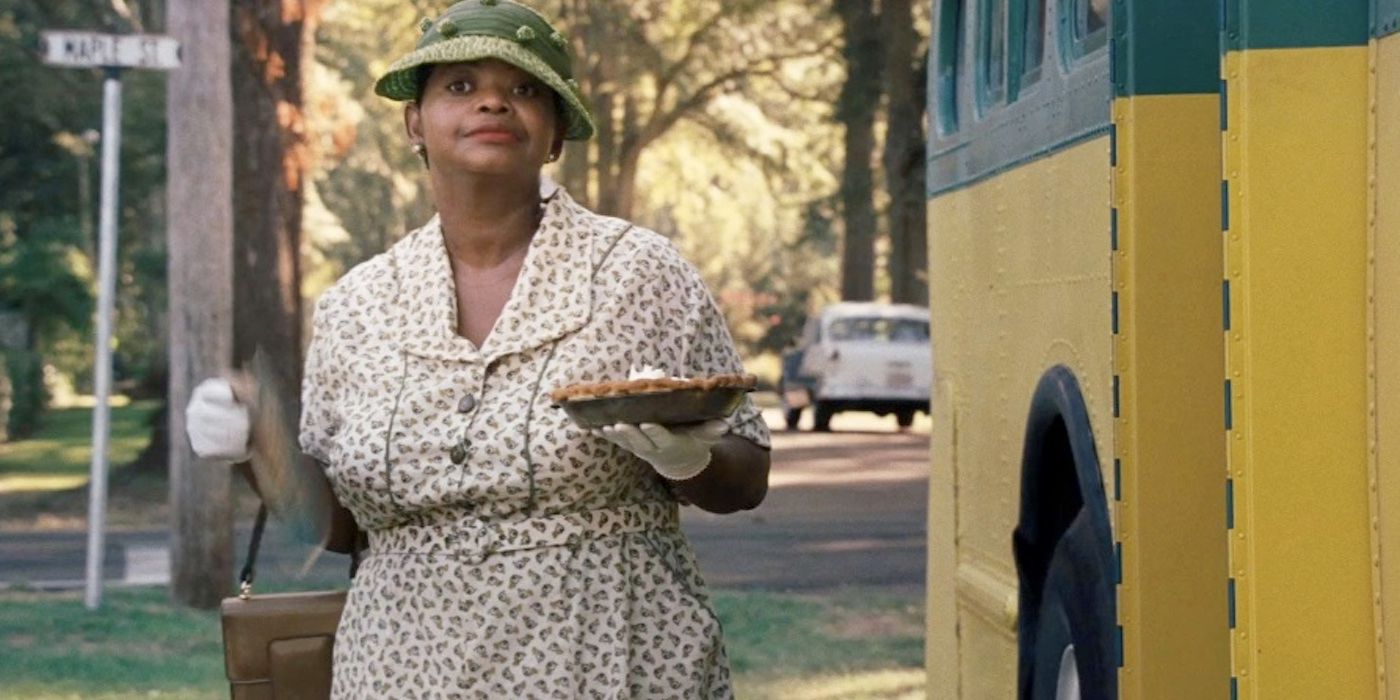Thomas Newman has been an active film composer for more than four decades, and in that time, he has provided some of the most iconic movie soundtracks of the 20th and 21st centuries. His prehension for soft piano motifs and minimalist, intimate melodies have captured a range of emotions, always moving his listeners. Newman's music encapsulates excitement, tenderness, sadness, emptiness, determination, and loss... to name but a few.
Each of these nine movies is a truly wonderful piece of cinema in its own right, but they wouldn't quite be the works of art that we all know and love without the nuance of Newman's composition.
Finding Nemo (2003)
This fun, family-friendly underwater adventure has become one of the true titans of Pixar's repertoire. It is cast to perfection, visually beautiful, and full of whimsical characters. This movie possesses so many delicate moments that capture the importance of family, the pain of loss, and the unreal lengths of determination that humans (or, in this case, fish) achieve to help someone they love. Newman employs a soft but warm piano, truly capturing that cozy, fuzzy feeling of belonging or that feeling of "home." This is often coupled with gorgeous, swelling strings that give a sense of bittersweet sadness to the movie. Newman's soundtrack not only embodies the movie's characters and their subsequent emotions, but the sea itself — calm, beautiful, soothing, but at the same time, harsh, unforgiving, and unpredictable.
Cinderella Man (2005)
Ron Howard's biographical film about the famous heavyweight champion of the world, James J. Braddock, is as brutal as it is beautiful. His second collaboration with Russell Crowe — following another biopic, A Beautiful Mind — is a modern parable of the American Dream. We are drawn into the dark and dreary era of The Great Depression, and we fight with an unstoppable, young Braddock every step of the way. Newman's soundtrack involves his classic use of the piano and strings, but he also remains particularly loyal to the sounds of the period. For example, the piano has a more "dusty" and vintage effect than his other works. This soundtrack possesses an uplifting determination that compliments the backbone of the movie to perfection.
A Series of Unfortunate Events (2004)
This 2004 adventure of childhood anxiety, steam-punk dystopia, and all-around moroseness is a staple for pretty much anyone between the ages of 15 and 30. Jim Carrey gives one of his most unforgettable and versatile performances as the iconic villain/horrendous actor, Count Olaf. This time, in comparison to his other works, Newman focuses more on musique concrète to create a more unsettling atmosphere. Amongst some whimsical melodies created by different synths and keyboards, we can hear thuds of a pan, the creaking of doors, or the hiss of the "Incredibly Deadly Viper." That Newman piano-string combo that we all know and love seeps into the film's more emotional, family-driven moments, but overall, this one proves outside of Newman's usual sound library, which makes it all the more effective for displaying the uniqueness of this movie's world and premise.
American Beauty (1999)
Arguably the most well-known of Newman's soundtracks, the iconic marimba-esque melody of the film's opening track, "Dead Already," has been featured in dozens of commercials, TV shows, and presentations. The same can be said for the film's eponymous serene piano piece. We all know these tracks, but many do not know that they originate from American Beauty and Newman's ingenious brain. The film is thought-provoking, humorous and whimsical, but, also sinister and uncomfortable. Newman's soundtrack captures all of these sensations, sometimes all at once. (For example, the delicate and sad piano combined with some unsettling strings in "Angela Undress.") Overall, this iconic soundtrack can exist separately from the film and functions as a piece of art in its own right.
The Shawshank Redemption (1994)
This has, rightly so, been constantly rated by critics and audiences alike as one of the best movies of all time, and Newman's soundtrack is no exception. His masterful creation of foreboding and drama, from the get-go, is captured in the film's iconic opening sequence, "Stoic Theme." The title itself is immaculate in describing what the film represents and what Newman's soundtrack achieves. The values of stoicism, and, by proxy, the lesson of The Shawshank Redemption, is about pushing forward, about not giving up, even when seemingly every odd is stacked against you. Newman's somber but composed cellos, mixed with hopeful piano motifs, to the elation of the orchestral masterpiece, the eponymous "Shawshank Redemption," which accompanies Andy's escape. This emotional but poised composition is one of the most emotional and enduring in Newman's repertoire.
WALL-E (2008)
Another charming adventure by Pixar, WALL-E tells the story of a lonely robot, looking for love in a trash-filled post-apocalyptic world. Newman blends the film's marriage of vintage nostalgia and futurism through his instrumentation, combining soft harp motifs with big epic drums and synths. His choices of minor strings, percussion, and woodwind echo another similar classic of the genre, John Williams's E.T. soundtrack. Much like his other collaboration with Pixar featured on this list (Finding Nemo), the delicate amalgamation of epic trial and trepidation with tender and sweet moments is what Newman does best, and this adorable tear-jerker is no exception.
Road to Perdition (2002)
This is one of Tom Hanks's many classic performances, but he is often, for lack of a better word, the "goodie" of the films he stars in: for example, the well-meaning Forrest Gump (Forrest Gump), the righteous Woody the Cowboy (Toy Story), and the determined, unyielding survivor, Chuck Noland (Cast Away). However, Road to Perdition casts Hanks in a much more morally ambiguous role. This neo-noir drama is just as full of paternal love and instinct as it is of crime syndicates and bank robbing. Once again, Newman's soundtrack checks the usual three vital boxes: the setting/period, the epic, and the intimate. His use of piano captures the sounds of the speakeasy, using the drama of orchestral strings for action-packed moments of violence, but dials down the tone beautifully during the moments when Sullivan's bond with his son grows.
Skyfall (2012)
This third installment in Daniel Craig's incredible run as the iconic James Bond saw the stakes continue to rise, the villains get increasingly menacing, and things get increasingly personal. We are given the classic, elaborate chase and combat scenes that are quintessential to a Bond film, but we are also given more of his background, even traveling to his childhood home in Scotland. Of course, Bond's profession and missions often take us all over the world, which is reflected in Newman's soundtrack, taking inspiration from sounds of a variety of countries and cultures. Newman is more renounced for his slow-paced, serene compositions, but he ups the ante (and tempo) in this film. It's a testament to his talent, as he is not afraid to create the sense of tension and urgency that a movie such as this requires to keep audiences on the edge of their seats.
The Help (2011)
Tate Taylor's period comedy-drama investigates the nuances, challenges, and importance of the Civil Rights Movement and the many forms that racism can take, with special attention to Black women in domestic service, often referred to as "the help." Featuring a ridiculously strong cast, with the likes of Viola Davis, Emma Stone, and Octavia Spencer, The Help catches us off guard at times: it often switches from moments of humor and light-heartedness to moments of utter dejection, despair, and complete discomfort. Unsurprisingly, Newman understands this and works in tandem with the film's ever-changing shift in tone. The feel-good moments possess an upbeat cadence and whimsy that make us laugh along when our beloved characters experience precious moments of mirth. However, Newman shines in moments where performances and emotions become raw and thought-provoking. His suspension of gorgeous strings, and slow but poignant melodies, never outshine the characters in these moments. If anything, it elevates the meaning of their words and pain, allowing audiences to become fully absorbed and invested in the film's vital messages.

